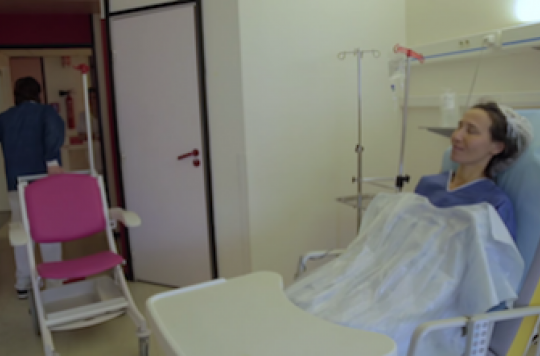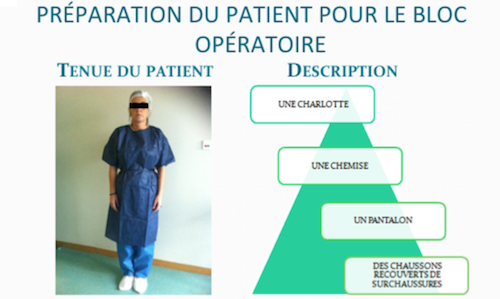SURVEY – 50% of surgeries performed on an outpatient basis, this is the government’s objective. But for the moment, the public sector only manages 30% of day hospital interventions. How to further improve the care and reception of patients? Why Docteur analyzes the strengths and the lags of this type of care.

“Did you take your Betadine shower well?” Have you removed all your jewelry? Will anyone stay with you tonight? It is half past seven in the morning. Emilie has just arrived at the Institut Curie (Paris), accompanied by her two children and a friend. Before her breast cancer surgery, a nurse performs routine check-ups. Five hours later, Emilie comes out of the structure on both legs. Like her, two million people are treated on an outpatient basis. The Minister of Health Marisol Touraine aims to do more: in 2016, one in two surgical operations should be done on an outpatient basis. But this new method of care requires an in-depth reorganization of the hospital. Why Doctor investigated the means to achieve this.
“The whole route must be traced”
Along with Emilie, the nurse explains in detail the course of the morning. “I’ll put the bracelet on you on the side that will be operated on.” You will descend on foot. You will stay one hour in the operating room, two hours in the recovery room. Someone will put you back in your chair and I will watch you for two hours, ”she lists. Fifteen minutes later, the patient is dressed: she is wearing a shirt, pants, overshoes, and an over-gown which keeps her warm. Emilie is escorted, on foot, to the operating room. In the elevator, she shows the first signs of anxiety. “The days before the operation, I had bouts of tears at the thought of someone taking something away from me,” says this blonde woman. “My children wanted to reassure me, they told me that something bad would be taken away from me… but it is also something good. “

Illustration of the dress of patients escorted to the operating room (Institut Mutualiste Montsouris)
Despite the anguish, no painkillers for Emilie: until she enters the OR, the woman remains completely independent. The anesthetist, to relax her, encourages her to imagine positive things. The intervention does not last more than an hour. But his support was prepared well in advance. “The outpatient clinic begins three days before surgery,” specifies Severine Alran, surgeon and head of the outpatient surgery unit (UCA) at Institut Curie. The patient is informed at the time of the consultation. He sees the nurses, then the anesthetist. We are also preparing the exit. The whole route must be marked out. The intervention itself does not change. But immediately after having sutured Emilie, the surgeon stands behind a computer: “We take the report immediately, and the patient leaves with his file in a pocket. We also send a copy to the general practitioner. “
Less fragile patients
At 1 p.m. sharp, Emilie leaves the Institut Curie, surrounded by her family. The nurse first reminded her of how to wash and take care of the scar. The next day, the same person calls to check on the condition of the scar. If all goes well, Emilie will not see a doctor again for three weeks. And the results are positive: “I found it all very fast. I arrive at 7:30 am, I am in the unit at 45. I did not have time to worry, she concludes three days later. When I got home, I sent my kids out to shop. We ate pancakes, we chatted over tea. That same evening, I slept. “
In 2012, Institut Curie opened its dedicated outpatient unit. In appearance, it looks like any other service. But the organization of care has been completely rethought. Some rooms have been transformed into waiting rooms for accompanying persons. And patients are no longer under surveillance in a bed, but on an armchair. “At the Institut Curie, we are in favor of all procedures that defragilize (sic) the patient comments Severine Alran. Cancer has the connotation of serious illness, while most patients arrive in general good health. We do not want to weaken them. »Olivier Untereiner, anesthesiologist at the Institut Mutualiste Montsouris (IMM) in Paris, also wishes to play down surgery. He also initiated the experience of the patient standing there.
Listen to Olivier Untereiner, anesthesiologist: ” Coming to your feet, being proactive in your care, clearly decreases the stress of patients. “
In the waiting room, Emilie’s relatives abound in this direction. For her daughter, returning to her home the same evening clearly eases the tension. “A decade ago, we stayed two or three days in the hospital,” notes his son. There have been quite a few good things since then. “
.















